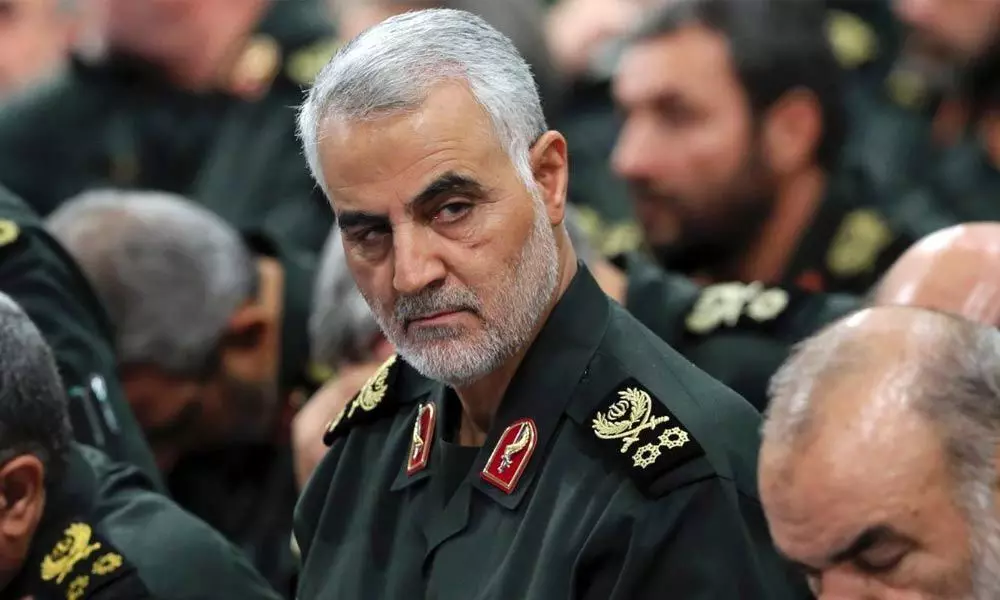Qassem Soleimani death: Challenges for India on Economic Front & World as a whole

Major General Qassem Soleimani, 62, the second most powerful figure in Iran, behind Supreme Leader Ayatollah Ali Khamenei, was killed by a drone strike near Baghdad International airport early on Friday. The airstrike was made on the orders of US President Donald Trump. And, his assassination at the start of the New Year as well as a new decade will not escalate the existing tension between the two countries, the US and Iran, but can worsen the geopolitical situation in West Asia.
Immediate Impact
The news of his death had an immediate impact on the stock markets of the world including the Dalal Street as well as the oil prices, referred as black gold, which surged over 4 per cent in international markets.
Situation arising after top Iranian Military Commander's Death by the US
Iranian Supreme Leader Ayatollah Khamenei said 'severe retaliation' awaits Soleimani killers. In a statement issued on Friday, Khamenei called for a three days public mourning and forceful revenge. He said, "His departure to God does not end his path or his mission". The statement hints towards retaliation against the United States, which may write a new story of bloody events and may further slow the pace of economic growth across the world - already has been impacted due to US-China trade dispute - in terms of oil prices.
Iran's top security body, the Supreme National Security Council, has condemned the assassination and said the US action as criminal adventurism and it should be held responsible for it. It termed the event as the biggest strategic blunder of the US in the West Asia region and it, US, will not easily escape its consequences.
Iran's Foreign Minister Javad Zarif has termed the attack as an "Act of International Terrorism" and targeting & assassinating of General Soleiman is extremely dangerous & a foolish escalation.
The US' act of international terrorism, targeting & assassinating General Soleimani—THE most effective force fighting Daesh (ISIS), Al Nusrah, Al Qaeda et al—is extremely dangerous & a foolish escalation.
— Javad Zarif (@JZarif) January 3, 2020
The US bears responsibility for all consequences of its rogue adventurism.
However, President Trump said the action was planned to stop a war, and we do not want to start a war. He said Soleimani was plotting imminent and sinister attacks on US diplomats and military personnel in Iraq and the region.
How it will affect the Geo-political scenario across the world?
The statements by the Iranian Supreme Leader Khamenei and other's from the country suggest that the Iranian regime will answer to the death of Soleimani. The revenge may include more attacks on US-military bases and oil installation in the Gulf-region.
In the process, the US has decided to send 3,000 extra US troops to the Middle East from the 82nd Airborne Division. They will join 750 troops from the same unit to Kuwait last week after an attack on the US embassy in Baghdad.
Meanwhile, rockets fell in and around Baghdad including an attack targeting an airbase housing US troops on Saturday evening; however, no soldiers were injured in the attack. These latest explosions came on the heels of a US airstrike that killed top Iranian general Qassem Soleimani.
Kataib Hezbollah militia of Iraq has warned Iraqi security forces to stay away from US bases in Iraq. Besides, US President Donald Trump has threatened that the US will hit 52 Iranian sites hardly if Iran attacks Americans or US assets. In addition, NATO has also suspended its training mission for soldiers in the Iraqi army, saying security concerns for its personnel were "paramount".
Challenge before the Indian Government to tackle
Iran's threat to retaliate after the assassination of Soleimani is a major concern for India which will take birth not only on energy front but also in maintaining its foreign policies with the two countries as well as safeguarding the interests of around 100 million Indians who are residing in the Gulf region.
At such a time, the biggest challenge before the Indian government is to tackle the situation not only on at a diplomatic level but also on the oil supply front without harming the relationship with the US as well as Iran.
The spoiled relations between the US and Iran would hit the Indian economy mainly in terms of oil, as India imports almost 83 per cent of its oil needs. The quick aftermath of the assassination was felt on oil prices on Friday, which surged over 4 per cent in the international markets. It has already rallied more than 35 per cent in the domestic market in 2019. Such spikes in oil prices may hit the government's fiscal arithmetic.
Iran which seems to be in a war-mode with the US and its Gulf allies in West Asia, at present, may also use its proxies in the region with an aim of causing massive damage. It may disrupt the supply routes or strike the key oil installations going beyond to its interests of hitting the US military in the Gulf region.
Thus, India will have to look after the possibilities of maintaining its crude supplies at the same levels without hurting its fiscal deficit targets, which has already reached an alarming level of 114.8 per cent of the budgeted target for the financial year at the end of November 2019. However, the current account deficit (CAD) has narrowed to 0.9 per cent of GDP or 6.3 billion USD in the second quarter of FY20. It stood at 2.9 per cent of GDP, or 19 billion USD, in the corresponding quarter of FY19. It was 2 per cent of GDP, or 14.2 billion USD, in the June quarter of FY2019. Current account deficit (CAD) is the gap between the value of total imports and aggregate exports














